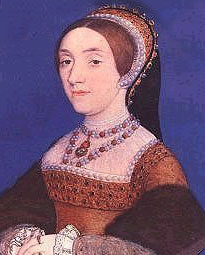 On this day in history, 2nd November…
On this day in history, 2nd November…
1541 – Archbishop Thomas Cranmer left a letter for Henry VIII in the Holy Day Closet at Hampton Court Palace detailing Catherine Howard’s colourful past and how she had “lived most corruptly and sensually”. Cranmer had been persuaded by Chancellor Audley and the Earl of Hertford to relate the story told by Mary Hall to her brother, John Lassells. Hall, who knew Catherine from her time in the Dowager Duchess of Norfolk’s household, had told Lassells:-
“There is one Francis Derrham, who was servant also in my lady of Norfolk’s house, which hath lien in bed with her [Catherine] in his doublet and hose between the sheets an hundred nights. And there hath been such puffing and blowing between them, that once in the house a maid which lay in the house with her, said to me, she would lie no longer with her, because she knew not what matrimony meant.”
Hall also went on to say that Catherine’s music tutor, Henry Manox, “knew a privy mark on her body”.
Cranmer consulted Audley and Hertford and it was decided that the King really needed to know about the allegations concerning his fifth wife, the woman he called his “rose without a thorn”. Cranmer decided the best course of action was to tell the King by letter and the note was left for the King to find when he went to mass. Henry VIII “conceived such a constant opinion of her honesty, that he supposed it rather to be a forged matter, than of truth”, and ordered an investigation to clear it up. Of course, the investigation was to show the King that the Queen’s past indiscretions were the least of his worries!
Notes and Sources
- LP xvi. 1334
- “A Complete Collection of State Trials and Proceedings for High Treason and Other Crimes and Misdemeanors”, compiled by T.B.Howell, p446-448